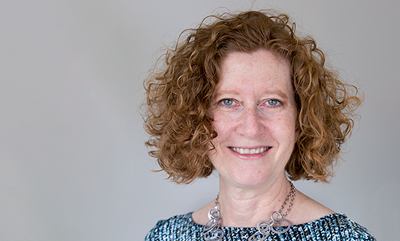‘We See Pregnant Women Lose Their Right to Bodily Integrity’.
 Are pregnant women an equal class of citizens?
Are pregnant women an equal class of citizens?
The answer, according to Lynn Paltrow, is increasingly “no.”
The founder and executive director of National Advocates for Pregnant Women (NAPW) argues that our narrow understandings of the abortion debate—the focus on access to abortion itself—has blinded us to the anti-choice movement’s impact on the legal status of women. And that impact is stark: increased recognition of fetuses as separate rights-bearing persons as pregnant women lose status as full rights-bearing constitutional persons.
On March 5, Paltrow will deliver a lecture titled “The ‘Other’ Problem in the Quest for Pregnant Women’s Personhood.” The talk is part of the annual Cathy Shine Lecture series, which honors the memory of Cathy Shine and her dedication to the rights of all those in need of care.
Ahead of the lecture, Paltrow spoke with Wendy Mariner, Edward R. Utley Professor of Health Law, Ethics & Human Rights, Health Law, Policy & Management, about the threatened rights of pregnant women, the increasingly extreme rhetoric of anti-abortion activists, and our country’s long history of “owning and controlling bodies of other people.”
Are we seeing an increase in the criminalization of pregnancy?
Unfortunately, I do think we’re seeing much more of this. My organization did a peer-reviewed study documenting arrests from 1973 to 2005, in which pregnancy was a necessary element of the crime, and we were able to hard document 413 cases. Between 2005 and today, there been more than 800 cases. There are also many other state mechanisms such as ones through the civil Child Welfare System that are used to control or lock up women.
What these cases demonstrate, and what the research demonstrates, is that being a pregnant woman makes things that would not otherwise be criminal, criminal. So, for example, it is not a crime to drink alcohol. It’s not a crime to fall down a flight of stairs. In most states, it’s not even a crime to use criminalized drugs, because the crime is possession, not use. So in the cases I work on, it is the becoming pregnant or the capacity for pregnancy that turns what would otherwise not be a crime into a crime.
If fertilized eggs, embryos, and fetuses are treated as separate persons, the consequences to pregnant women include losing their rights to life, health, bodily integrity, and medical decision-making, as well as their right to privacy in medical information. A pregnant woman who goes for her first appointment at prenatal care has no privacy or confidentiality in her medical information, because she is carrying a separate person, a child, who may be protected by the state. She would have no right to privacy at all upon becoming pregnant.
Why do you think this is occurring?
Forty-six years of anti-abortion rhetoric that describes having an abortion as murder, and abortion more generally as a genocide worse than any of the history of humankind, creates an environment in which it is acceptable to see, not only pregnant women who have abortions, but women in general, as the worst, most heinous criminals on earth.
When Trump was running for office, he made the mistake of saying there has to be some kind of punishment for women who have abortions. Leaders of pro-life, antiabortion organizations, including I think the March for Life and the National Right to Life Committee, all said, “Oh no no, of course not, we don’t want to punish women. We’re focused on the doctors.” But in fact, none of those organizations had ever spoken out on behalf of the women we’ve helped to represent, who’ve been arrested for having abortions, nor have they reckoned with the fact that their constituencies are listening to them and hearing them very clearly. As recent videos by Reproaction.org document, anti-abortion activists believe that abortion is the same as murder; therefore, the women who have abortion should be thought of as criminals, and they should be arrested and convicted of murder.
How does these efforts factor into efforts to overturn or dismantle Roe v. Wade?
Th
Are there a higher proportion of women of color and low-income women that are targeted in these cases?
Our peer-reviewed research on arrests of pregnant women found that the overwhelming majority of women, who are arrested or subjected to an equivalent of an arrest, are low-income, and women of color and especially Black women, are disproportionately targeted for arrest. Black women were also more likely to be charged felonies and more likely to be reported to state authorities by doctors and other hospital based professionals. One of the things that’s clear is that when the government outlaws or engages in any kind of prohibition, whether it’s alcohol prohibition, drug proposition, or abortion prohibition, laws are never enforced equally. They are always used as mechanisms to control certain populations.
Do you think that has any consequences or any implications for the support of laws that target pregnant women?
Our country was founded on the idea that some people can own and control the bodies of other people. So it should not be surprising to anyone, including white women who find it difficult to access an abortion, or are forced to submit to cesarean surgery, that they can be deprived of their right to control their own bodies.
The Cathy Shine Lecture takes place on March 5 from 1 to 2:30 p.m. in Hiebert Lounge. The event is cohosted with the School of Law.
Comments & Discussion
Boston University moderates comments to facilitate an informed, substantive, civil conversation. Abusive, profane, self-promotional, misleading, incoherent or off-topic comments will be rejected. Moderators are staffed during regular business hours (EST) and can only accept comments written in English. Statistics or facts must include a citation or a link to the citation.